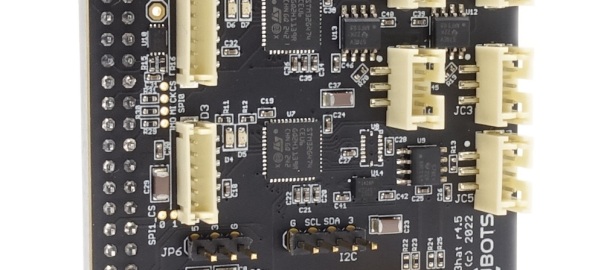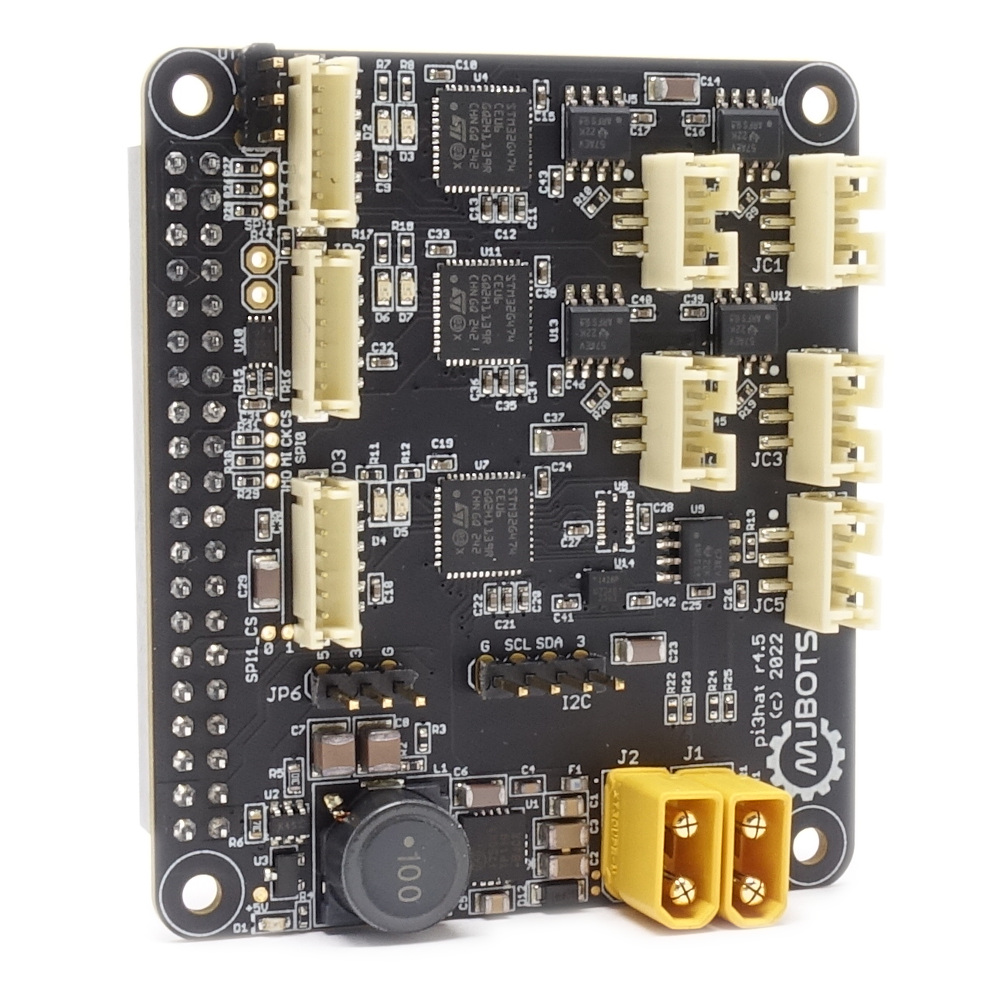I’m excited to announce the newest addition to the moteus line of BLDC controllers, the moteus-c1! The moteus-c1 is a smaller, lower power, lower cost version of the moteus-r4 and moteus-n1, but still packs a big punch.

The top of the line performance metrics for the entire moteus lineup now look like:
| moteus-c1 | moteus-r4 | moteus-n1 | |
| Input Voltage | 10-51V | 10-44V | 10-54V |
| Peak Phase Current | 20A | 100A | 100A |
| Continuous Phase Current | 5A / 14A | 11A / 22A | 9A / 18A |
| Dimensions | 38mm x 38mm | 46mm x 53mm | 46mm x 46 mm |
| I/O | AUX1 D and E are present as through hole pads. AUX2 is identical to moteus-n1 | AUX1: SPI, Hall, ADC AUX2: I2C and UART 3.3V only | AUX1 and AUX2 support SPI, UART, Quadrature, Hall, and I2C. 5.5V and 3.3V provided on each connector. I2C pullups are configurable on each connector. |
| RS422 | None | None | Built-in transceiver for RS422 based encoders |
| CAN fault tolerance | 58V | 12V | 58V |
| Price | $69 | $79 | $149 |
The upshot is that for low current motors where RS422 is not required, it is nearly as capable as the moteus-n1 for less than half the price!
Compatibility
The moteus-c1 is fully electrically and software compatible with the moteus-r4 and moteus-n1. It uses the same connectors for power, CAN, and AUX2 and it has the same through hole layout for power and phase terminals as the moteus-n1. While the moteus-c1 requires firmware version 2024-04-30 or newer, the same firmware image can be used across the entire moteus line and all functionality that is available based on the connectors present are available on all controllers.
Accessories
The controller itself isn’t the only thing available at a price that is an exceptional value. The moteus-c1 developer kit has been updated to use the mjcanfd-usb-1x and entirely 3D printed brackets. One omission from this lower cost kit is the stm32 programmer, which is still available separately. This gets the overall price of the moteus-c1 developer kit down to the almost crazy point of $149, which around the same as a single moteus-n1!

As with the moteus-r4 and moteus-n1, we also stock a heat spreader for the moteus-c1 for applications where you want to push the thermal envelope. This heat spreader now comes with thermal tape rather than paste, which should make installations less messy.
Intro Video
Finally, here is a short introduction video. The observant viewer will notice many not yet announced demonstrations and projects! Those should get written up in the following months as time permits.







